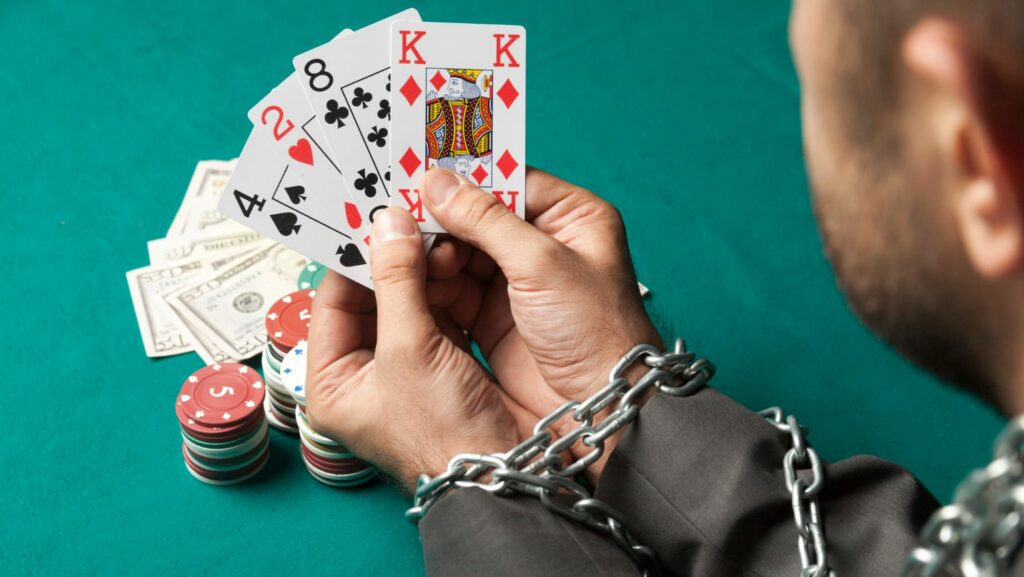Compulsive gambling, also known as gambling disorder, refers to the uncontrollable urge to keep gambling despite the toll it takes on one’s life. In 2024, as gambling opportunities and accessibility continue to expand through online betting and glitzy new casinos like Boomerang, gambling addiction threatens the financial, emotional, and physical well-being of a growing number of individuals.
The Spiraling Cycle of Chasing Losses
The central factor that fuels gambling addiction is the desire to chase losses and win back money that has been gambled away. This creates a vicious cycle as gamblers sink deeper into debt and yet feel compelled to continue gambling in hopes of scoring that one big win to get even.
Research shows that the stress of chasing losses activates the brain’s reward system, releasing feel-good dopamine that reinforces the gambling behavior. “Gamblers get hooked on the euphoria and adrenaline produced when risking money,” explains Dr. Linda Graham, PhD, a psychologist who specializes in gambling disorder. “They start to crave that euphoric high, which impairs self-control and decision-making abilities.”
Financial Devastation: Job Loss, Bankruptcy, and Foreclosure
The unrelenting chase after wins that never come has devastating real-world impacts on a gambler’s finances and livelihood. Consider the following statistics:
- 23% of disordered gamblers file for bankruptcy due to gambling losses
- 16% lose their jobs or face demotion due to declining performance
- 12% lose their homes or face foreclosure
“Gambling addiction has hugely negative financial consequences,” says Martin Williams, a consumer credit counselor. “People lie to others to hide the extent of their gambling, but the fallout eventually catches up with them.”
Strained Relationships and Shattered Trust
Beyond monetary losses, obsessive gambling takes a tremendous toll on relationships. Individuals suffering from gambling disorders often lie about their behavior and its consequences. They hide unpaid bills, maxed-out credit cards, and gambling debts.

“When the truth inevitably emerges, the betrayal destroys relationships,” says Graham. “Partners and family members feel hurt, angry, and betrayed, seriously damaging trust.”
- 68% of disordered gamblers admit to lying about their gambling
- 58% have severely strained relationships due to trust issues
- 32% face divorce or separation due to their gambling
This breakdown of trust and communication strains the gambler’s closest relationships past the breaking point.
Poor Physical and Mental Health
The persistent stress of gambling disorder also manifests in physical and psychological health ailments, including:
- Digestive issues
- Headaches, dizziness
- Panic attacks
- Depression, anxiety
- Substance abuse
- Suicidal thoughts
Additionally, gamblers often neglect self-care like diet, sleep, and exercise, as gambling consumes their focus and time.
“Problem gambling goes hand in hand with poor health and dangerous risk-taking behavior,” Graham explains. “The physical and emotional impacts accumulate and compound the longer gambling continues unchecked.”
Overcoming Gambling Addiction
While gambling disorder is click here for serious personal and societal harms, treatment options and support resources are available to help individuals regain control.
Self-Exclusion and Usage Tracking
All gambling establishments are legally required to offer self-exclusion options, allowing individuals to ban themselves from the premises for a set period. This helps sever access to the tempting environment.

Many sites and apps also have usage trackers so gamblers can monitor time and money spent, set spending limits, and screen for addiction warning signs.
Support Groups
Peer support groups like Gamblers Anonymous use 12-step models to build community and accountability. By sharing struggles and achievements, groups reinforce that recovery is possible.
Talk Therapy & Financial Counseling
Cognitive and behavioral talk therapy helps identify the emotional triggers behind gambling urges. Financial counseling assists in debt relief planning and rebuilding credit.
Graham advises finding an experienced counselor: “Like any addiction, gambling disorder responds best to tailored treatment plans addressing the psychological, financial, and relational impacts holistically.”
While the gambling landscape will continue evolving with technology and culture, a greater understanding of gambling addiction can help communities support those suffering in the grip of this dangerous disorder. Removing the stigma around this issue is a positive first step toward healing.

